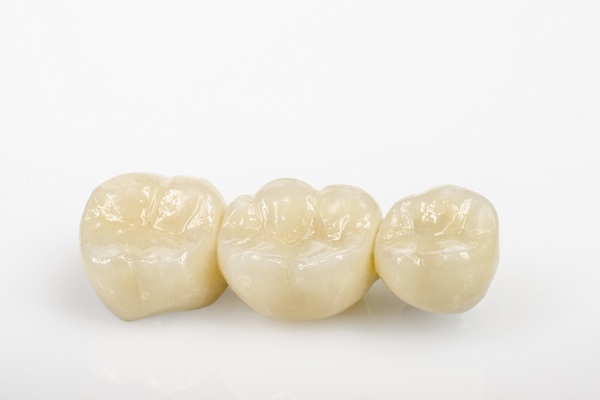 A general dentistry practitioner handles all types of cavities, even those that form between the teeth, medically known as interproximal cavities. These are caused by the erosion of the enamel, the tooth's protective outer covering. Although it is the strongest portion of the body, the enamel is continually assaulted by acids produced by oral bacteria and acids found in the foods consumed.
A general dentistry practitioner handles all types of cavities, even those that form between the teeth, medically known as interproximal cavities. These are caused by the erosion of the enamel, the tooth's protective outer covering. Although it is the strongest portion of the body, the enamel is continually assaulted by acids produced by oral bacteria and acids found in the foods consumed.
Interproximal cavities and how a general dentist identifies them
Oral bacteria become entrenched in plaque or tartar on a person's teeth. When food particles and germs are not cleaned off regularly, these deposits accumulate on a person's teeth. Plaque or tartar bacteria convert any carbs and sugars they find in the mouth into acids, which cause holes in tooth surfaces.
Since they occur in the narrow gaps between a person's teeth, interproximal cavities are more difficult to notice visually. To make a proper evaluation, a bite-wing x-ray is usually necessary. It allows the dentist to discover cavities in the early stages. Some indicators of an interproximal cavity include sensitivity when consuming hot, cold, or sugary meals and beverages, as well as a toothache that worsens when chewing.
Fluoride treatment can be utilized to remineralize the damaged tooth if the patient's interproximal cavity has not progressed more than halfway into the enamel. Fillings are the usual general dentistry procedure if the cavity has progressed past the enamel. Composite resin fillings are chosen for this procedure since it is possible to customize their color to match the patient's teeth.
If not addressed, an interproximal cavity will make its way into the pulp chamber, much like a common cavity. In this case, the tooth will need to undergo a root canal. Otherwise, the tooth will ultimately get infected. If the infection spreads to the tooth's roots, it may be necessary to remove the tooth to prevent the infection from spreading to vital organs, where it can be fatal.
Stopping cavities between teeth
Flossing and brushing twice a day are two excellent ways to prevent cavities from forming in the gaps between teeth. Flossing eliminates plaque from hard-to-reach places that are inaccessible to the toothbrush's bristles. A fluoride-based mouthwash adds another layer of defense against tooth decay. Fluoride treatments can help remineralize teeth with deteriorating enamel.
When it comes to preventing cavities of any kind, good dental hygiene is important. When it comes to interproximal decay, flossing is especially crucial because brushing is hardly efficient in cleaning the gaps between teeth. By flossing every day, patients can keep the spaces between their teeth clean, along with every part of the oral cavity. Patients also need to stay committed to biannual dental appointments at the general dentistry office so the dentist can examine the teeth and catch cavities before they worsen.
The general dentist can provide adequate treatment
Fluoride, fillings, or a root canal can all be used to treat cavities. If you have noticed signs of cavities, visit the general dentistry office to speak with a dentist about your choices.
A general dentist may treat any cavity, including those that develop between the teeth, referred to as interproximal cavities in medical terms. Erosion of the enamel, the tooth's protective outer layer, causes it. The enamel is constantly attacked by acids generated by oral bacteria and acids present in the foods eaten, despite being the strongest part of the body.
Request an appointment or call Summit Family & Cosmetic Dentistry at 908-516-3833 for an appointment in our Summit office.
Related Posts
When patients visit the general dentistry office, the goal is to keep their oral health excellent. The appointment may be nothing more than a professional dental cleaning and getting instructions on proper oral health so long as there are no oral issues. If dental problems are to be addressed, the dentist will recommend the appropriate…
Like a doctor’s office visit, general dentistry is not something you want to neglect or dismiss. Your oral health is as important as any other aspect of your well-being. As you go to the dentist’s office, you can find out about any troubling issues affecting your teeth and gums. In between dental appointments, you are…
In general dentistry, dental sealants can help ensure good dental health in children. The protective layer can also extend up to adulthood. This gives patients the opportunity to enjoy strong teeth without worrying about dental damage. If you want to know how general dentistry makes use of dental sealants, here are the details.Chewing and biting…


